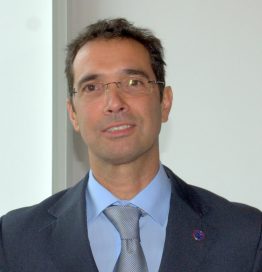- Home
- All Speakers
- Vitor Correia

Vitor Correia
President
European Federation of Geologists
Speaker profile
Vitor is the President of the European Federation of Geologists, a professional organisation that represents the professional geoscientists from 25 European countries. He is also the Secretary-General of the International Raw Materials Observatory, a spinoff of the EU funded project INTRAW. Victor is a member of the Expert Group on Resource Classification of UNECE, and an independent evaluator for mineral projects of the World Bank.
Vitor founded and managed several companies working in geosciences, and he has over 25 years of experience in strategic management, innovation and organisational effectiveness. He began his career as a mining geologist, and he worked in mineral exploration, geological engineering and environmental geology in Europe, Africa and South America. Vitor holds a BSc in Geology and an MBA, both from the University of Lisbon. He is registered as a Eurogeologist, and in 2017 he was elected for Honorary Fellowship of the Geological Society of London for his achievements advancing international cooperation in geosciences.
Presentation summary
Promoting dialogues and tracking drivers of change: the pathway to sustainable mining.
Two aspects often jeopardise international cooperation on raw materials. The first is the silo mentality. People tend to discuss and talk about raw materials in isolation. The second aspect is the glass dome effect. This effect is fed by the belief that one-size-fits-all. In a rational analysis, this isn’t true, but its’ common to see policymakers pushing the same ideas and solutions in different contexts.
Because Europe is an import-dependent economy, the EU has been fostering trade, alongside domestic sourcing of raw materials and enhanced resource-efficiency. The International Raw Materials Observatory was created in this context, as an outcome of the Horizon 2020 funded project INTRAW. The Observatory collects international best practice on mineral policies, on research & innovation, on education & outreach, on industry & trade, and on recycling & substitution. This insight is used to foster dialogues among stakeholders and policymakers, in the intersection between political actors and society. Connecting this to the two aspects that jeopardise cooperation on raw materials means that the Observatory aims to break down silos while discovering the full context of the application of sound solutions.
